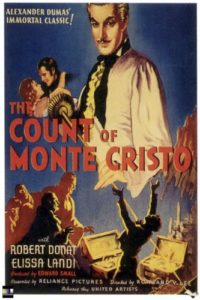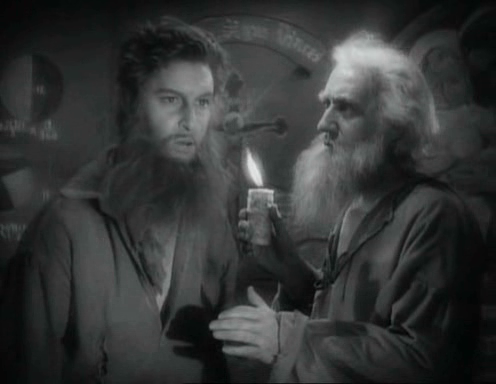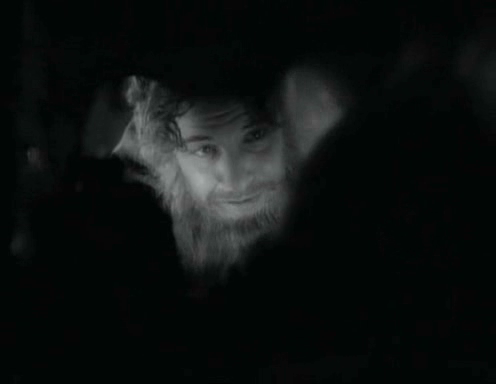“It was not my sword, Mondego, but your past that disarmed you!”
|

Synopsis:
During the time of Napoleon’s exile, a falsely accused sailor (Robert Donat) escapes from a dungeon with the help of his secret cellmate (O.P. Heggle), who tells him about hidden treasure on the deserted island of Monte Cristo. Donat emerges under a new identity as a count, eager to reconnect with his fiancee (Elissa Landi), who — thinking Donat dead — has married one of the men (Sidney Blackmer) responsible for Donat’s imprisonment. Soon Donat begins his calculated plan for the downfall of Blackmer, the corrupt city magistrate (Louis Calhern), and a greedy officer (Raymond Walburn).
|
|
Genres, Themes, Actors, and Directors:
- Falsely Accused
- Historical Drama
- Louis Calhern Films
- Mistaken or Hidden Identities
- Prisoners
- Revenge
- Robert Donat Films
Review:
This first sound adaptation of Alexandre Dumas’ beloved classic is cited by many as one of the best, and it remains a rousing, finely told adventure tale. In his Hollywood debut, Donat is convincingly determined in his efforts, and suitably noble when events take an unexpected turn in the final portion of the screenplay. There is undeniable satisfaction to be had as each of the self-serving men who have gravely wronged Donat (indeed, sent him to his supposed death without concern) get their come-uppance in a fashion exactly suited to their temperament; while the saintly Heggle may worry about Donat’s feverish resentment getting the better of him, Donat makes it clear that his vengeance is not just specific to his own cause but symbolic, meant to rid the world of at least a few sources of unmitigated corruption.
Redeeming Qualities and Moments:
- Robert Donat as Edmond Dantes

- Fine cinematography

Must See?
No, but it’s recommended. Listed as a film with Historical Importance in the back of Peary’s book.
Links:
|
3 thoughts on “Count of Monte Cristo, The (1934)”
First viewing. A once-must, at least, for its place in cinema history and as an all-around good show.
For me, this was something of a find. Up until now, I’ve only ever known the title of this famous story. I hadn’t seen this version – or any version (and there have been many) – before. I did know a few versions of Dumas’ ‘The Three Musketeers’ and that may have something to do with it: I didn’t seem to be the target audience for tales of allegiance (or betrayal) with a French history backdrop. So I didn’t even know the basic plot of ‘TCOMC’ – only what I knew because of the background of ‘Long Day’s Journey Into Night’: that Eugene O’Neill’s father James had played The Count on-stage over 6,000 times.
But this story took me by surprise – it swept me up from the beginning and kept me throughout. (Who knows?; I may have to get around to the novel if / when time allows.)
Directed in fine form by Rowland V. Lee, the film has a screenplay (by Lee, Dan Totheroh, Harvey F. Thew and Philip Dunne) that is a refreshingly clever mixture of the straightforward and the complex. (It’s necessary to pay particular attention.) It also has a tonal shift midway: in the first half, it’s somewhat dark and depressing as we witness Edmond Dantes fall into a fate of exile; it’s then energizing and endlessly intriguing as he exacts his revenge.
Donat is splendid in the leading role and he has a fine co-star in Landi (giving a layered performance in a role that calls for subtext). Equally impressive are the film’s three villains: Walburn, Calhern and Blackmer. (I always laugh in recognition when I see Blackmer in one of his early films – since his performance as Roman in ‘Rosemary’s Baby’ is so memorable that I can hear bits and pieces of his ‘Roman’ voice in anything he does.)
I believe most film fanatics would find this a satisfying watch and a very solid entry in a film of its type. It’s intelligent and gripping and, therefore, rewarding. A second viewing could easily be enjoyable as well.
The novel is amazing! I remember I couldn’t put it down when I read it as a teenager (though that was quite awhile ago now…)
I’ll keep it in mind. 😉